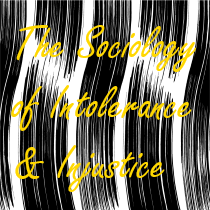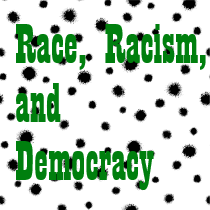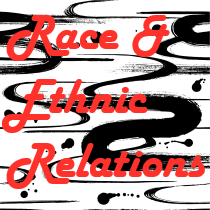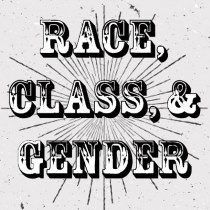Molloy College, Long Island, NY
Assistant Professor, Department of Sociology


Hello and welcome to my website.
I am an assistant professor of Sociology at Molloy College in Long Island, NY. My teaching and research interests include race and ethnicity, political sociology, social movements, media, and human rights.
My first book, Debating the Drug War: Race, Politics, and the Media, has a release date in March 16, 2021 with Routledge Press.
Pre-order the book hereMy work has appeared in venues such as Social Currents, Sociology of Race and Ethnicity, Ethnic and Racial Studies, and Deviant Behavior.
My current research examines how the participants in a progressive grassroots party in the Northeast engage with issues of racial inequality and injustice in their identities, habits, and political strategies. This project seeks to illuminate possibilities and barriers for building a racially just and inclusive grassroots democracy and advance a new understanding of racial politics grounded in everyday social life.
Assistant Professor, Department of Sociology
Graduate Instructor, Department of Sociology (Spring 2015 - Spring 2020)
Teaching Assistant for Prof. Mary Donegan (Fall 2019)
Teaching Assistant for Prof. Matthew W. Hughey (Summer 2018 & Spring 2020)
Research Assistant for Prof. Matthew W. Hughey (Spring 2018 - Fall 2018)
Special Lecturer in Sociology, Student Support Services (SSS), Institute for Student Success (Summer 2015 & Summer 2017)
Social Studies Instructor, Connecticut Collegiate Awareness and Preparation Program (ConnCAP), Institute for Student Success (Summer 2016)
Teaching Assistant for Prof. Davita Silfen Glasberg and Prof. Barret Katuna(Fall 2014)
Adjunct Faculty, Department of Sociology
Research and Training Associate
Visiting Lecturer, Department of Sociology
Adjunct Faculty, Department of Sociology
Research Assistant for Ervin (Maliq) Matthew (Fall 2012 to Spring 2014)
Instructor of Sociology (Summer 2013)
Teaching Assistant (Fall 2010 to Summer 2012)
Ph.D., Sociology 2020
Dissertation Title: “Democracy is Awkward: Progressive Grassroots Politics and Racial Inequality”
University of Connecticut
Master of Arts, Sociology
Cincinnati University
Bachelor of Arts in Sociology and Anthropology
Economics Minor
Ohio Wesleyan University
















My overall research program concentrates on using in-depth qualitative analysis to reveal the intersecting social dynamics of racial inequality, digital communication, media representations, and politics and social movements.
The great collaborator, Daryl Hall, once said "I'm a born collaborator. This is what I was born to do, really" and I can't help but agree with that sentiment.
I have had a lot of great experiences working with a lot of great people. Please check out all of their work with and without me.
While the historical and ongoing symbolic and material inequalities and violence faced by African Americans can be understood as a human rights violation, the efficacy of the human rights framework for addressing racial injustice in the united States remains contested. In this article, I examine the relationship between the emergence and dominance of the geopolitical doctrine of human rights and the struggle for racial justice in the united States. through historical, legal, and sociological analysis of relevant issues and cases, I discern the benefits and limitations of the human rights framework for achieving racial justice and elucidate dynamics between relevant institutional, political, and social actors. I argue that the human rights framework opens international pathways for information, accountability, and symbolic politics conducive to combating racial injustice, particularly regarding overt manifestations of oppression and violence, but enduring issues such as the role of the state in racial politics and the dehumanization of people of color present hindrances.
While the historical and ongoing symbolic and material inequalities and violence faced by African Americans can be understood as a human rights violation, the efficacy of the human rights framework for addressing racial injustice in the united States remains contested. In this article, I examine the relationship between the emergence and dominance of the geopolitical doctrine of human rights and the struggle for racial justice in the united States. through historical, legal, and sociological analysis of relevant issues and cases, I discern the benefits and limitations of the human rights framework for achieving racial justice and elucidate dynamics between relevant institutional, political, and social actors. I argue that the human rights framework opens international pathways for information, accountability, and symbolic politics conducive to combating racial injustice, particularly regarding overt manifestations of oppression and violence, but enduring issues such as the role of the state in racial politics and the dehumanization of people of color present hindrances.
The term “microaggression” has experienced a lively existence in the field of psychology since its introduction in 1970s. Sociology has recently come to study microaggressions, yet serious gaps remain in the study of microaggressions. In particular, sociological analysis has not taken into account how exposure to microaggressive interactions may affect racial attitudes, how variations in microaggressive interactions have different effects, and what racial and gender positions render one more or less likely to engage in, or fail to oppose, microaggressions. Based on a GSS-based survey and an experimental vignette design, we address the following two questions: First, how might the presence of racial microaggressions affect racial attitudes? Second, what is the power of specific types of interactional microaggression? Results indicate that both exposure to microaggressions and the type of microaggressions are correlated with changes in specific racial attitudes associated with the marginalization, problematization, and symbolic and physical repression of people of color.
Recent sociological works establish the significance and role of the state and political sphere in the enactment of racial oppression and construction of racial categories. However, less understood are the racialized dynamics that mediate exclusion and access to political power, particularly at the meso- and micro-levels. Synthesizing extant theory and research on racial inequality, the state, politics, and power, this article advances a framework centering on boundaries and barriers. First, it discusses the relationship between the state and political sphere, political power, and racial inequality. Next, it explores the literature on the deployment and contestation of racialized boundaries to the symbolic and material benefits of the state. It then examines the literature on racialized barriers to engagement, participation, and influence in the political sphere. The article concludes by suggesting future research in the related areas of agenda-setting and influence and the microdynamics of political power.
As a set of criminal justice policies and practices, the “war on drugs” is a contested social issue linked to specific racial meanings and structures and political logics. As the legitimacy and value of the “war on drugs” has increasingly become a topic of public discussion, how such debates are shaped by both media communication and contemporary racial discourses warrants rigorous sociological analysis. In this article, we use a content analysis of newspaper manuscripts and online comments on “war on drugs” news stories to examine (1) the racial discourse within mass media agenda-setting and framing and (2) patterns of discursive identity construction in the context of digital and mass-mediated social commentary. Our findings show how “racial silence,” implicit and explicit racial discourse, and identity construction via racialized subject-positions assist to rationalize and legitimate racial inequality. We also outline the theoretical implications of these findings and avenues of future research.
From the political behemoths of the Democratic and Republican Parties, to the Civil Rights Era racially progressive Mississippi Freedom Democratic Party and reactionary American Independent Party, to the contemporary third party Green and Libertarian Parties, party politics in the USA has a long and storied relationship to the reproduction and contestation of racial domination. Recent works illuminate the strategic use of racial discourse by major party political elites, their deployment of racialized political platforms, and the relationship of these phenomena to power dynamics and racial interests but have yet to fully move beyond the two-party system and engage with innovations in political and cultural sociology. We outline openings for an empirically-grounded sociology of political parties that would reveal the micro- and meso-level features of racialized party politics and the operations of discursive and performative power within both major and minor political parties.
The history of racial domination in the United States is multifaceted and therefore cannot be explained through simple reference to ideologies or institutional structures. At the microlevel, racial domination is reproduced through social interactions. In this article, I draw on Erving Goffman’s dramaturgical approach to social interaction to illuminate the development of the racialized interaction order whereby actors racialized as white impose a set of implicit rules and underlying assumptions onto interracial interactions. I examine archetypal instances of racialized social interactions in America’s history and present-day to reveal the role of social interactions in racially structuring social institutions and everyday lives. First, I discuss the development and racialization of chattel slavery and its routinization as an interaction order. Next, I explore the dramaturgical and symbolic significance of the postbellum emergence and spread of racial terrorism such as white lynch mobs. I then analyze the contemporary discursive and performative strategies of white racial dominance and aspects of the contemporary racialized interaction order such as the de facto racialization of spatial boundaries, mass media and the digital sphere, and police violence. I conclude by discussing the significance of interactional analysis for understanding the present racialized social system.
Analyzing on-line drug communities provides important insights into the connection between computer-mediated communication and drug use in contemporary society. Drawing on social learning theory, we analyze conversations within the on-line community DMT-Nexus. We find that the on-line context affects the social learning process concerning drug use in distinct ways and identify how users gain relevant knowledge and interpretive strategies and acquire credibility. Based on these findings, we propose an expansion of Becker’s social learning model of drug use reflecting the unique constraints and opportunities of on-line contexts including the importance of vivid textual descriptions and modes of communication.
Yo, Is This Racist? is a popular comedy podcast hosted by self-proclaimed ‘‘race obsessed’’ comedy writer Andrew Ti. It has been profiled by mainstream news outlets including National Public Radio (NPR 2013) and The Huffington Post (Miller 2013). The podcast is based on Ti’s successful tumblr page (yoisthisracist.com) in which he answers queries about the relative racism of various situations, events, and people. Each episode features a prerecorded race-related question from a caller which Ti and a guest, generally a comedian or entertainer, discuss in an irreverent, profanity laced, and comedic manner and ultimately attempt to address the podcast’s titular question. In this media review, I analyze the content and premise of Yo, Is This Racist? and address major sociological concerns that emerge from its existence and popularity.
One only need picture the typical American corporate boss (white, male, and wealthy) in order to conjure up the history of discrimination and inequality within the business realm. Over the past few decades, business leaders have attempted to address these problems through efforts oriented at increasing diversity. For instance, in 2014, major tech companies including Google, Apple, Twitter, and Facebook released their diversity statistics in reports to the media under pressure from journalists and activists. While the reports revealed the overwhelming white masculinity of the modern corporation, the companies still framed their statistics as reflecting their commitment to diversity. (Cont.)
I have a deep appreciation for the learning process and I devote a great deal of energy and reflection toward honing my pedagogical craft. My experiences and training have provided me the capabilities to educate a wide variety of students. I have acquired an effective approach to teaching that centers on combining the accessible elucidation of sociological concepts with sociologically informed discussions of real world issues. This approach enables students to develop their own abilities for critical thinking and social empathy while learning sociological insights in an engaging and approachable manner.
I have taught 14 core and upper-level courses in sociology at various institutions.

The course will consist of lectures and weekly discussions or activities. Some classes will be devoted to lectures covering both material in the readings as well as further context and information. Other classes will consist of a small amount of lecturing at times but will mostly provide an opportunity for greater interactive engagement with the material through media, active learning exercises, and open dialogue on contemporary and controversial issues. If possible, I will also be inviting scholars, practitioners, and experts to provide guest lectures at various points to provide “insider” knowledge about various topics.

The course will consist of lectures and weekly discussions or activities. Classes will generally be devoted to lectures covering both material in the readings as well as further context and information. Some classes will consist of a small amount of lecturing at times but will mostly provide an opportunity for greater interactive engagement with the material through media, active learning exercises, and open dialogue on contemporary and controversial issues.

The course will consist of lectures and weekly discussions or activities. Tuesday classes will generally be devoted to lectures covering both material in the readings as well as further context and information. Thursday classes will consist of a small amount of lecturing at times but will mostly provide an opportunity for greater interactive engagement with the material through media, active learning exercises, and open dialogue on contemporary and controversial issues. If possible, I will also be inviting scholars, practitioners, and experts to provide guest lectures at various points to provide “insider” knowledge about various topics.

The course will consist of lectures and weekly discussions or activities. Many classes will be devoted to lectures covering both material in the readings as well as further context and information. Other classes will consist of a small amount of lecturing at times but will mostly provide an opportunity for greater interactive engagement with the material through media, active learning exercises, and open dialogue on contemporary and controversial issues. As this is an upper level course, we will be having in-depth conversations about critical and contested social issues. I expect all of you to come to each class with questions and reactions to the readings.

The course will consist of lectures and weekly discussions or activities. Tuesday classes will be devoted to lectures covering both material in the readings as well as further context and information. Thursday classes will consist of a small amount of lecturing at times but will mostly provide an opportunity for greater interactive engagement with the material through media, active learning exercises, and open dialogue on contemporary and controversial issues. As this is an upper level course, we will be having indepth conversations about critical and contested social issues. I expect all of you to come to class each week with questions and reactions to the readings.

“W” Course:This is a writing intensive course and thus we focus on scholarly research and writing skills throughout the course alongside relevant topics. At the completion of this course, the student should be able to construct logical arguments, write and cite appropriately for academic work, understand and utilize research methods, and have produced a 15-page scholarly research paper.
The course consists of both lectures and weekly discussions or activities. Monday and Wednesday classes are generally devoted to lectures covering both material in the readings as well as further context and information. Friday classes consist of relevant discussions or activities to provide an opportunity for greater interactive engagement with the material through media, active learning exercises, and open dialogue on contemporary and controversial issues.
In order to cover a wide range of material and save you some money, there is no textbook for this course! All of the readings for this course can be found online on the course website under the heading “Weekly Readings.”

The course will consist of both lectures and weekly discussions or activities. While many classes will generally be devoted to lectures covering both material in the readings as well as further context and information, other classes will consist of relevant discussions or activities to provide an opportunity for greater interactive engagement with the material through media, active learning exercises, and open dialogue on contemporary and controversial issues. Prepare yourself to think critically, read a lot, and engage in some very interesting and informed class discussions!
The textbook for this course is You May Ask Yourself: An Introduction to Thinking like a Sociologist (4th Edition) by Dalton Conley (W.W. Norton Co. Press).
“The Racial Geography of Democracy: Racialized Space and Community Among Grassroots Progressives,” Southern Sociological Society Annual Meeting, Jacksonville, FL
“Blue State Blues: Regionality, Racial Meanings, and Reactions in Political Identity Construction,” American Sociological Association Annual Meeting, New York, NY
“Consequences of Consciousness: How Racial Habits shape Grassroots Political Strategies,” Lunchtime Seminar, University of Connecticut Human Rights Institute, Storrs, CT
“Decoding the Drug War: The Racial Politics of Digital Audience Reception,” Eastern Sociological Society Mini-Conference on Digital Sociology, Boston, MA
“Consequences of Consciousness: How Racial Habits Shape Grassroots Political Strategies,” Eastern Sociological Society Mini-Conference on Race and Organizations, Boston, MA
“Democracy and Social Contact: Research and Practice,” Everyday Democracy Strengthening Democratic Capacity Unit Retreat, Hartford, CT
“The Racial Politics of Meaning in Media and Everyday Life,” Presidential Panel, Society for the Study of Symbolic Interactionism Mini-Conference on The Roots and Branches of Interpretive Sociology: Cultural, Pragmatist, and Psychosocial Approaches, Philadelphia, PA
Panelist, “Getting Published in Social Problems and the Student Editorial Board,” Society for the Study of Social Problems Annual Meeting, Philadelphia, PA
“Consequences of Consciousness: How Racial Habits Shape Grassroots Political Strategies,” Society for the Study of Social Problems Annual Meeting, Philadelphia, PA
“Blue State Blues: Regionality, Racial Meanings, and Reactions in the Construction of Political Identity,” American Sociological Association Annual Meeting, Philadelphia, PA
“Making Everyday Microaggressions: An Exploratory Vignette Study on the Presence and Power of Racial Microaggressions,” (with Matthew W. Hughey), Southern Sociological Society Annual Meeting, New Orleans, LA
“Progressive Whiteness: Racial Habits and Grassroots Political Strategies,” Southern Sociological Society Annual Meeting, New Orleans, LA
“From Ideology to Identity: Racial Meanings in the ‘War on Drugs’ Debate,” Society for the Study of Social Problems Annual Meeting, Montreal, QC
“‘A Problem of Humanity’: The Human Rights Framework and the Struggle for Racial Justice,” American Sociological Association Annual Meeting, Montreal, QC
“‘A Problem of Humanity’: The Human Rights Framework and the Struggle for Racial Justice,” Borderlands Research Symposium, University of Connecticut, Storrs, CT
“From Ideology to Identity: Racial Meanings in the ‘War on Drugs’ Debate,” 12th Social Theory Forum, Boston, MA
“Dramaturgical Domination: The Genesis and Evolution of the Racialized Interaction Order,” Society for the Study of Social Problems Annual Meeting, Seattle, WA
“Why Black Rights Matter: Discursive Constructions of Black Political Rights in the Mississippi Freedom Movement,” American Sociological Association Annual Meeting, Seattle, WA
“The White Pages: A Meta-Analysis of Journal Articles on Whiteness,” (with Matthew W. Hughey), American Sociological Association Annual Meeting, Seattle, WA
“Speaking through Silence: Racial Discourse and Identity Construction in Mass Mediated Debates on the ‘War on Drugs’,” Borderlands Research Symposium, University of Connecticut, Storrs, CT
“The Generic Processes of White Racial Identity Formation: A Sociology of Sociology,” (with Matthew W. Hughey), Eastern Sociological Society Annual Meeting, Boston, MA
“Pipeline or Prejudice: Media Narratives of Barriers and Downsides in Corporate Diversity Initiatives,” (with Devon R. Goss), Eastern Sociological Society Annual Meeting, Boston, MA
“Colorblind and Callous Critiques: Racial Discourse and Identity Construction in Debates on the ‘War on Drugs’,” (with Matthew W. Hughey), American Sociological Association Annual Meeting, Chicago, IL
“Profits over People: Media Discourses of Corporate Diversity as ‘Good for Business’,” (with Devon R. Goss and Matthew W. Hughey), Society for the Study of Social Problems Annual Meeting, Chicago, IL
“Colorblind Critiques: Racial Discourse in Mass Media Debates on the ‘War on Drugs’,” (with Matthew W. Hughey), Eastern Sociological Society Annual Meeting, New York, NY
“Reflexive Validation: Knowledge and Meaning Construction in Online Communities,” North Central Sociological Association Annual Meeting, Cincinnati, OH
“Reflexive Validation: Knowledge and Meaning Construction in Online Communities,” Charles Phelps Taft Research Center, University of Cincinnati, Cincinnati, OH
Describing the Indescribable: Interpretation, Discourse, and Social Learning within an Online Drug Community,” Society for the Study of Social Problems Annual Meeting, New York, NY
Casualties of America's Longest Running War: The War on Drugs and its Effects on Black Families,” North Central Sociological Association Annual Meeting, Indianapolis, IN
Describing the Indescribable: Interpretation, Discourse, and Social Learning within an Online Drug Community,” Charles Phelps Taft Research Center, University of Cincinnati, Cincinnati, OH
Racial Ideology: Approaches to, and Applications of the Concept in Recent Social and Behavioral Research,” North Central Sociological Association Annual Meeting, Pittsburgh, PA
Unemployment’s Effects on Relationships and Individuals within Families,” North Central Sociological Association Annual Meeting, Cleveland, OH
Interviewed by reporter Eglė Krištopaitytė for Lithuanian news site 15min.it on racial politics and the War on Drugs in the U.S.
Interviewed by and provided research consultation on racial consciousness among white progressives for New York Times reporter Amy Harmon

“Indigenous Feminism and Environmental Justice: Social Movements in a Transnational Context,” Guest Lecture – Society in Global Perspective, University of Connecticut
“Social Learning Theory and the Social Construction of Drug Use in Internet-Based Subcultures,” Guest Lecture - Drugs & Society, University of Cincinnati
“Experiencing Socioeconomic Inequality and Poverty in the United States,” Guest Lecture - Introduction to Sociology, University of Cincinnati
“Negotiating the Presentation of Self and Stigma in Deviant Occupations,” Guest Lecture - Introduction to Sociology, University of Cincinnati
Research Support, Webinar on Racial Equity for Anchor Partners, Everyday Democracy
Participant, Everyday Democracy Train-the-Facilitator Training, The Commission on Racial and Ethnic Disparity in the Criminal Justice System
Panelist, Navigating the Annual Meeting Webinar, American Sociological Association
Participant, Community Dialogue on Immigrant and Refugee Justice, Everyday Democracy
Presenter, Institute for Community Change Leaders Webinar on Using Dialogue in Community Change Work, Everyday Democracy
Participant, A Time to Talk: Poverty, Criminal Justice, and Race, Poverty, Criminal Justice, and Race Collaborative of Connecticut
Participant, “Cross-Cultural and Diversity Inclusiveness Training for Graduate Students,” Institute for Collaborative Health Interventions and Policy, University of Connecticut
Participant/Discussant, “The Politics of Social Change,” Department of Sociology, University of Connecticut
Participant, “Media Training for Scholars and Researchers,” Drug Policy Alliance - Office of Academic Engagement
Participant, “Grantsmanship Workshop: Specific Aims Section,” Institute for Collaborative Health Intervention and Policy (InCHIP), University of Connecticut
Consultant on Teaching/Research Balance, “Challenges and Joys of Graduate Teaching” Workshop, Department of Sociology, University of Connecticut
Participant, “Research in the Borderlands”: An Interdisciplinary Workshop Series for Critical Researchers, El Instituto: Institute of Latina/o, Caribbean, and Latin American Studies and the Department of Sociology, University of Connecticut
Participant/Facilitator, “Justice Talking” Discussion Group, AmeriCorps/American Red Cross of Greater Columbus